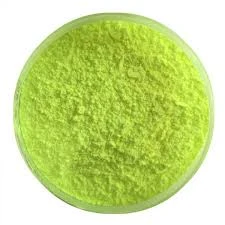The Role of L-Ornithine L-Aspartate (LOLA) in Liver Health
L-Ornithine L-Aspartate (LOLA) is a compound that has gained attention in the field of hepatology for its potential therapeutic effects on liver health. As an amino acid derivative, LOLA plays a crucial role in the urea cycle and nitrogen metabolism, making it essential for patients suffering from liver disorders, particularly cirrhosis and hepatic encephalopathy.
Understanding LOLA
LOLA is a combination of two amino acids ornithine and aspartate. Ornithine, a non-proteinogenic amino acid, is generated during the breakdown of arginine and is crucial for the urea cycle, where it assists the body in detoxifying ammonia—a byproduct of protein metabolism. Aspartate, on the other hand, is important for several metabolic processes, including the synthesis of other amino acids and the Krebs cycle, which is vital for energy production.
When combined, these amino acids form LOLA, which has been shown to reduce ammonia levels in the blood. Elevated ammonia is a hallmark of liver dysfunction and can lead to serious neurological complications, known as hepatic encephalopathy. This condition manifests through cognitive impairment, altered consciousness, and, in severe cases, coma.
Mechanism of Action
The efficacy of LOLA in managing hyperammonemia (high ammonia levels) can be attributed to its ability to enhance the detoxification of ammonia in the liver. When administered, LOLA is metabolized into ornithine and aspartate. The ornithine stimulates the urea cycle, promoting the conversion of ammonia into urea, which is then excreted by the kidneys. Aspartate, meanwhile, facilitates the synthesis of various metabolites necessary for energy production and nitrogen balance.
Moreover, research has suggested that LOLA contributes to an improvement in the overall energy metabolism of liver cells, promoting better liver function and potentially enhancing the regeneration of damaged liver tissue. This is particularly crucial considering the limited regenerative capacity of the liver in chronic disease states.
l ornithine l aspartate lola

Clinical Applications
LOLA has been widely studied in clinical settings, particularly among patients with liver cirrhosis and hepatic encephalopathy. Multiple studies have reported that administration of LOLA can significantly lower blood ammonia levels, leading to improvements in cognitive function and a reduction in the severity of encephalopathy symptoms. Furthermore, its use has been associated with fewer episodes of acute hepatic encephalopathy in patients undergoing treatment.
In addition to hepatic encephalopathy, LOLA has also been explored for its potential benefits in other liver-related conditions, including acute and chronic liver failure. While more research is needed to establish comprehensive treatment guidelines, current evidence indicates that LOLA may serve as a supportive therapy, improving patients' overall quality of life and mitigating some of the complications associated with liver disease.
Safety and Side Effects
LOLA is generally well tolerated and has a favorable safety profile in patient populations. Commonly reported side effects are minimal and may include gastrointestinal symptoms such as nausea or diarrhea. However, as with any therapeutic agent, monitoring is essential, especially in patients with advanced liver disease, where metabolic complications may arise.
Conclusion
In summary, L-Ornithine L-Aspartate represents a promising adjunctive treatment for individuals suffering from liver diseases, particularly those facing challenges related to elevated ammonia levels and hepatic encephalopathy. Its ability to promote ammonia detoxification and support energy metabolism provides a multifaceted approach to improving liver function and overall health. As ongoing research continues to explore its benefits and applications, LOLA may hold significant potential for enhancing liver health and patient outcomes in clinical practice.

